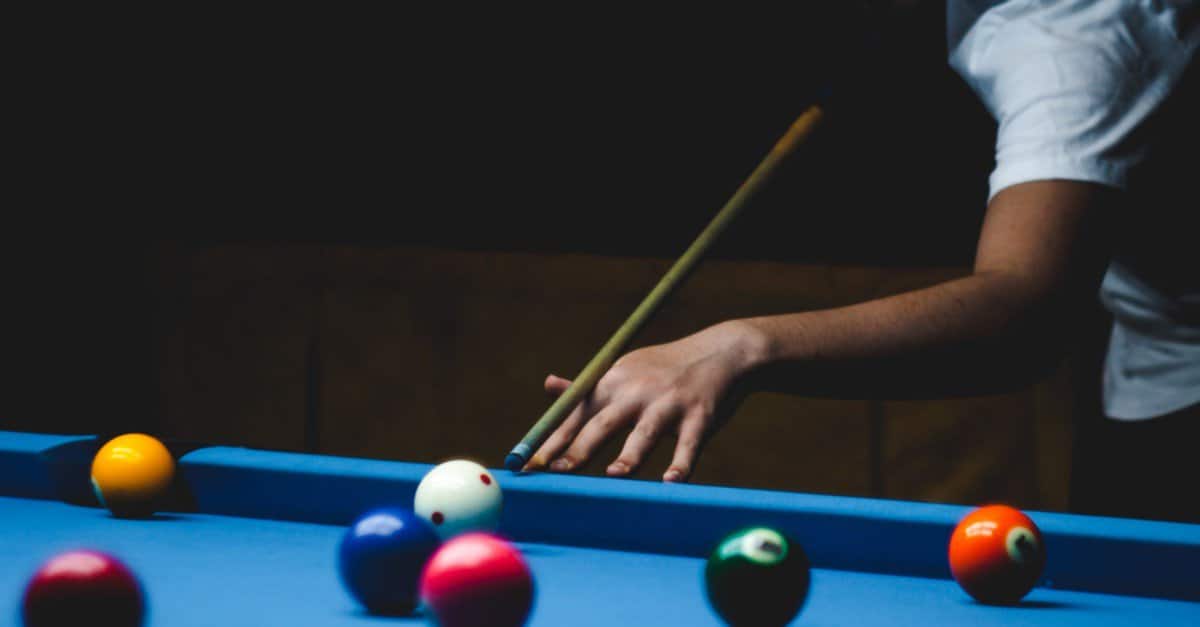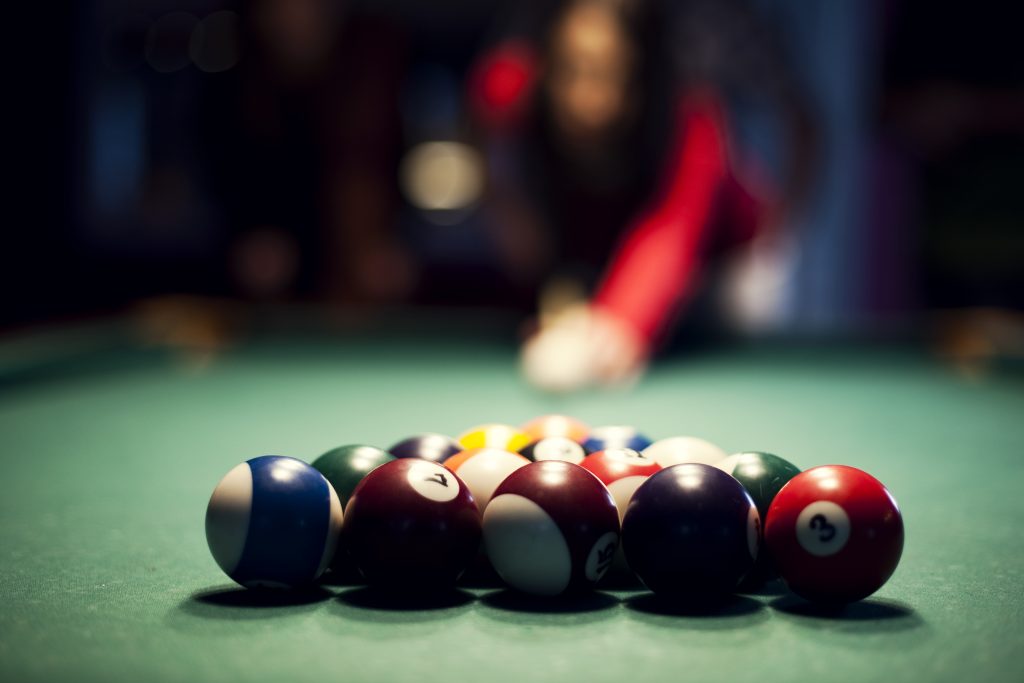Is Pool A Sport Or Game? The Great Debate Explained
Is billiards a sport or a game? The lines blur, but the distinction hinges on one crucial element: physical exertion.
The question of whether billiards, specifically pool and its related cue sports, falls under the umbrella of "sport" or remains confined to the realm of "game" has ignited debates within competitive circles and casual gatherings alike. The two terms, often used interchangeably, possess definitions that, at their core, share significant overlap. After all, it's not inaccurate to suggest that all sports are, in essence, games. However, a crucial differentiator emerges, a factor that often dictates the classification: the presence and intensity of physical exertion.
To understand this nuanced discussion, let's delve deeper into the characteristics that define each category.
| Characteristic | Sport | Game |
|---|---|---|
| Physical Exertion | Typically high, involving significant muscle usage, cardiovascular activity, and stamina requirements. | Can vary, but generally lower. May involve limited physical activity, or primarily focus on mental skills. |
| Strategy | Essential; often requires complex tactical planning, strategic thinking, and adaptability. | Often present, though the level of strategic complexity can vary widely. |
| Competition | Central; involves structured competition, organized leagues, and formal rules. | Can involve competition, but often with less formal structure or organizational oversight. |
| Governing Bodies | Typically has established governing bodies that set rules, oversee competitions, and promote the sport. | May or may not have governing bodies, often less formal. |
Source: Britannica - Billiards
Pool, a versatile game that has undeniably found its place on the international stage, presents a compelling case study in this debate. It is a series of cue sports, meticulously played on a billiard table, the green felt a stage for strategic precision and calculated angles. The table itself, a rectangular arena, is characterized by its six pockets strategically positioned along the rails, the intended destinations for the numbered balls. The mechanics of the game are seemingly simple: use a cue stick to strike a cue ball, aiming to pocket other balls in a specific order or pattern. Yet, beneath the surface lies a world of intricate strategy, honed skill, and intense competition.
The most popular pool games, with variations on the core rules, include 8-Ball, 9-Ball, Straight Pool and One Pocket, to name a few, each demanding different skill sets and strategic approaches from their players. The objective, whether it's sinking balls in a particular order or strategically positioning the cue ball for the next shot, is ultimately to outmaneuver the opponent and secure victory. But are these mental challenges, the precision required for each shot, and the competitive fire enough to qualify the game as a sport? It is here that the discussion often turns heated.
The debate itself underscores a broader exploration of how we define athleticism, competition, and skill. It compels us to examine the very essence of what makes an activity a "sport". Does a sport need to be a physically demanding activity? Does it have to include cardio and muscle exertion? Or can sports exist in the absence of these, relying instead on skill, strategy and competitive play?
The argument for pool being a sport typically emphasizes the mental acuity, strategic planning, and hand-eye coordination required to excel. Professional pool players spend countless hours practicing, honing their skills to achieve near-perfect accuracy and developing intricate strategies to outmaneuver their opponents. They possess a deep understanding of angles, ball physics, and the subtle nuances of cue ball control. This dedication and mastery, supporters say, are hallmarks of any sport.
Conversely, those who view pool as a game often point to the comparatively low level of physical exertion. While pool requires stamina and focus over extended periods, the physical demands pale in comparison to sports like basketball, football, or track and field. The argument goes that the sport does not involve the same kind of intense cardiovascular activity, muscle exertion, and the body's endurance. This is one of the main factors for not including pool in the Olympics.
The reality is that pool occupies a unique space. It is not a sport in the traditional sense, but it embodies many of the same elements. It requires skill, strategy, and competitive drive. It is recognized internationally, with its own governing bodies like the World Pool-Billiard Association (WPA) that set rules and oversee professional competitions. The Asian Games, for instance, added the cue sports category in 2016, highlighting their growing recognition and competitive appeal.
The evolution of pool and snooker from pub activities to recognised sports is a testament to its growing popularity. The mental challenges of the game, and the physical prowess that is required, have led to the development of recognised bodies. The absence from the Olympics is partially due to the perception of low physical exertion involved.
The term "pool" itself, though widely used, is a product of evolution. While skittle pool was played on a pocketless carom billiards table, it was the emergence of pocket billiards games in the United States that popularised the term. As the sport grew, the term "pool" stuck, becoming the common name for the sport, while the more formal term "pocket billiards" is more often used in the cue sports industry.
Billiards has been recognized and declared a sport by the Olympic committee. It has not yet been reported as an Olympic sport.
Billiard sports themselves are categorized in the World Games, adding further nuance to the discussion. These categories reflect the varying forms of billiards, which include pool, snooker and carom billiards, each with its own set of rules, strategies, and competitive circuits. The distinction between these categories highlights the breadth and diversity of cue sports, demonstrating that billiards encompass a variety of games, each requiring unique skills and strategic thinking.
In conclusion, the question of whether pool is a sport or a game is not easily answered. While there is a debate, the lines blur. Perhaps the most accurate answer is that it is something in between, a unique pursuit that combines elements of both. It is a game, but it is also a sport, a test of skill, strategy, and competitive spirit that continues to captivate players and audiences worldwide.
Whether you view it as a game or a sport, pool is undoubtedly a challenging and rewarding activity. Its a competition of skill, strategy, and precision, thats accessible to people of all ages and skill levels.



Detail Author:
- Name : Holden Greenfelder
- Email : willow19@yahoo.com
- Birthdate : 1996-09-05
- Address : 197 Marks Grove Apt. 972 Lake Medachester, PA 58938-8188
- Phone : 828-822-0872
- Company : Jacobs Inc
- Job : Deburring Machine Operator
- Bio : Explicabo voluptatem aliquid qui. Vel ea neque ut expedita nobis qui. Et vel nam dolorem perspiciatis ea dolore laborum. Provident culpa corrupti necessitatibus omnis qui vel ut.